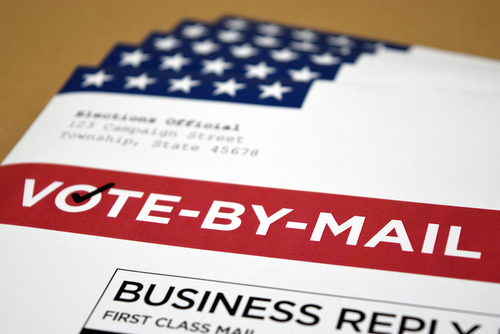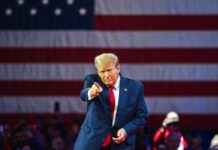
California Governor Gavin Newsom has signed a law prohibiting local governments from implementing voter identification requirements, igniting a heated debate over election security and access. The legislation is a direct response to Huntington Beach, where residents voted earlier this year to enforce voter ID for municipal elections. Newsom’s action, seen as a move to protect voter access, has stirred criticism from those who view ID requirements as a necessary safeguard against fraud.
On September 30, Newsom signed Senate Bill 1174 into law, effectively blocking local jurisdictions from requiring a valid ID to vote in any election. This came after Huntington Beach, a conservative-leaning city, passed a voter initiative in March demanding IDs at the polls. However, state officials, including Attorney General Rob Bonta, quickly intervened, suing the city to halt the rule, claiming it violated California’s election laws.
BREAKING: California Gov. Gavin Newsome Signed a Bill into Stopping Local Authorities from Requiring Photo ID to Vote
Newsome and Democrats argue asking for ID is racist because some citizens may not be able to obtain a photo ID due to various reasons like economic barriers or… pic.twitter.com/IMqTk2BgbX
— MJTruthUltra (@MJTruthUltra) September 30, 2024
Proponents of the new law argue that voter ID laws disproportionately affect marginalized groups, such as low-income voters, the elderly, and minorities. These groups may face challenges in obtaining identification, creating barriers to voting. "The right to freely cast your vote is the foundation of our democracy," said Bonta, defending the legislation and asserting that existing laws already contain robust anti-fraud protections.
Critics, however, have voiced strong opposition. They argue that voter ID laws are essential for maintaining election integrity and preventing fraud. Elon Musk was among those criticizing the move, suggesting that the legislation essentially "made preventing voter fraud illegal". Many see the requirement to show ID in everyday activities like flying or cashing a check as evidence that similar measures should apply to voting, one of the most critical civic duties.
🚨BREAKING: California Governor Newsom has signed a new law stating that residents are not required to present identification to vote in elections. pic.twitter.com/0sMq1covYp
— I Meme Therefore I Am 🇺🇸 (@ImMeme0) September 30, 2024
The bill’s author, State Senator David Min, dismissed these concerns, calling them "fringe conspiracy theories." Min emphasized that California could not allow a patchwork of voter ID rules across the state, which could lead to confusion and unfair barriers to voting. He also noted that no credible evidence of widespread voter fraud had been produced in California, further justifying the decision to block Huntington Beach's measure.
This legislative development is part of a broader national conversation around voting rights and election security. While states like Georgia and Texas have tightened voter ID laws in recent years, California is moving in the opposite direction, prioritizing voter access over concerns about fraud. California's new law, set to take effect on January 1, 2025, will ensure that no local government can impose additional requirements beyond what state law dictates.
The issue of voter ID has long been a partisan flashpoint in the U.S., with Republicans typically advocating for stricter laws to prevent potential fraud and Democrats focusing on expanding access to the ballot box. California’s new legislation is likely to continue fueling this debate as the 2024 elections approach. As the state moves forward with this new law, other states may watch closely to see if similar measures gain traction, or if they inspire more legal battles over the balance between election security and voter accessibility.
This new chapter in California’s voting laws raises critical questions: Will the elimination of local voter ID requirements result in increased voter participation, particularly among historically disenfranchised groups? Or will it leave the state more vulnerable to fraud, as critics claim? Only time will tell as this battle over the ballot box continues.











Damn dem-a-rats at it again. This country needs to be devided into 3. West, dem-a-rats coast. Middle republican. And east coast dem-a-rats Virginia and up. Then let’s see who survives and who folds. Let’s succeed, Texas and Tennessee can lead the charge.